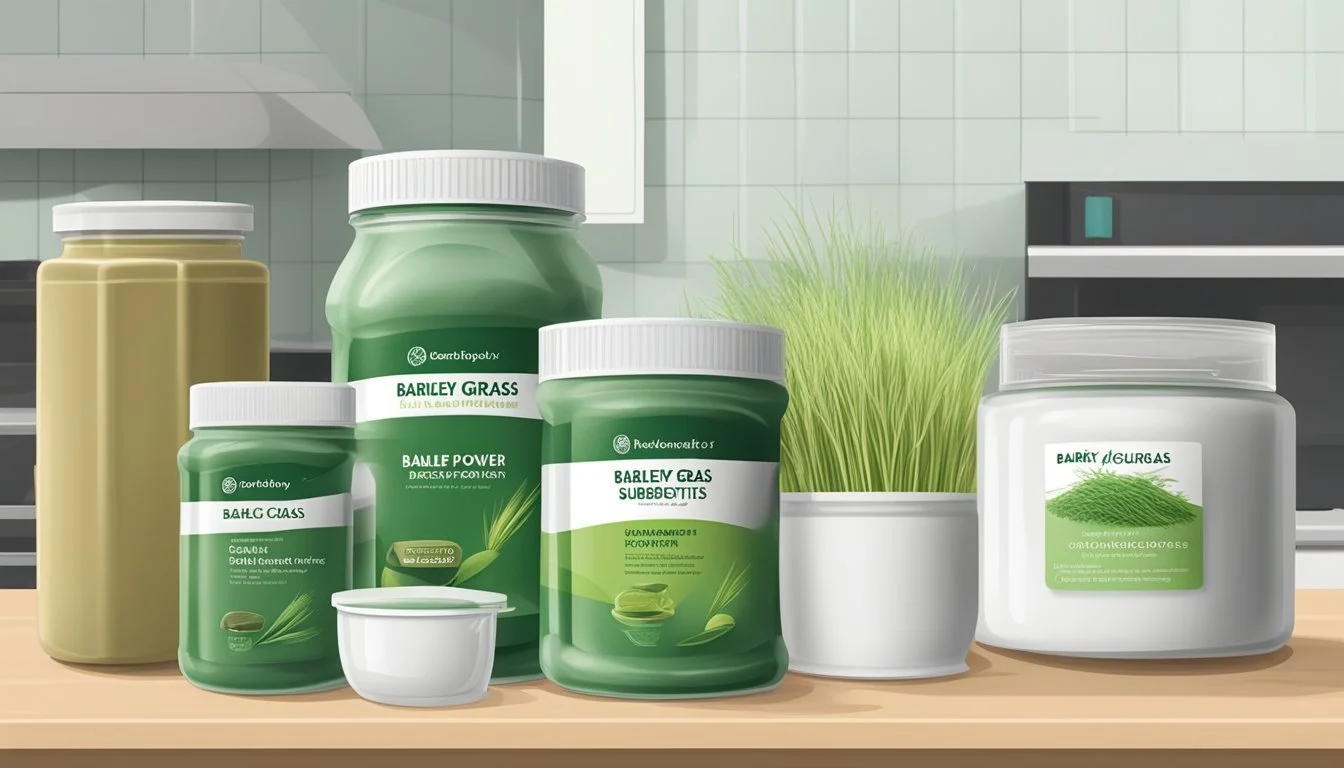Barley Grass Powder Substitutes
Top Alternatives for Your Health
Finding a suitable substitute for barley grass powder in your recipes might seem daunting, but there are several excellent alternatives available. Spirulina stands out as an excellent substitute due to its similar nutrient profile, offering ample vitamins, minerals, and antioxidants. This microalgae also supports immune health and detoxification, making it a versatile addition to your dietary routine.
Another great option is wheatgrass powder, which is often compared to barley grass powder due to its high chlorophyll content and potential health benefits. Wheatgrass is rich in vitamins A, C, and E, along with iron, calcium, and magnesium, providing a robust nutritional boost similar to that of barley grass.
Chlorella powder, another green superfood, can also serve as a potent substitute. Known for its high protein content and detoxifying properties, chlorella is packed with essential nutrients that can support overall health. By exploring these alternatives, you can maintain the nutritional integrity of your diet while experimenting with new flavors and textures.
Understanding Barley Grass Powder
Barley grass powder is derived from the young leaves of the barley plant. It's acclaimed for its rich nutritional profile and health benefits, making it a popular addition to various diets. This section examines its origins, nutritional content, benefits, reasons for seeking substitutes, and culinary uses.
What Is Barley
Barley (Hordeum vulgare) is a versatile grain, cultivated globally for thousands of years. It's a member of the grass family and predominantly used in beverages, animal feed, and health foods. When it's young, the leaves of barley are harvested and processed into barley grass powder.
Nutritional Profile of Barley Grass Powder
Barley grass powder is packed with essential nutrients. It's high in vitamins A, C, and K, rich in B vitamins, magnesium, iron, and manganese. Additionally, it contains antioxidants and essential amino acids. Low in calories but high in dietary fiber and protein, it supports overall nutritional balance.
Dietary Benefits of Barley Grass Powder
Barley grass powder offers numerous health benefits. It helps in lowering cholesterol levels and regulating blood pressure. The presence of antioxidants supports the immune system, while its high fiber content aids in digestion. Furthermore, its rich mineral and vitamin profile supports skin, hair, and overall metabolic health.
Common Reasons for Seeking Substitutes
Substitutes for barley grass powder are often sought due to dietary restrictions such as gluten intolerance, celiac disease, and other gluten sensitivities. Individuals might also look for alternatives due to availability, cost, or personal taste preferences.
Barley Grass Powder Substitutes
Common substitutes include quinoa, buckwheat, millet, and brown rice for their nutritional profiles. Wild rice, farro, freekeh, and amaranth also serve as excellent alternatives, offering similar protein and fiber content. These substitutes are versatile and can be incorporated in many recipes.
Culinary Uses for Substitutes
These substitutes can be used in a variety of dishes. Quinoa and millet are excellent in salads, soups, and stews. Farro and freekeh are ideal for risottos and porridge. Brown rice and wild rice fit well in pasta, baked goods, and as side dishes in hearty meals.
Nutritional Considerations When Choosing Substitutes
When choosing substitutes, consider their nutritional value, including fiber, proteins, and essential vitamins and minerals. A balance of calories, carbohydrates, and glycemic index should be taken into account to match dietary needs and restrictions.
Exploring Global Cuisine Influences
Many of these substitutes are staples in global cuisines. For example, quinoa is native to South America, while millet is common in African and Asian dishes. Understanding these cultural uses can inspire new culinary adventures and flavor profiles in your diet.
Storing and Handling Barley Grass Powder and Its Substitutes
Both barley grass powder and its substitutes should be stored in a cool, dry place, ideally in airtight containers to maintain freshness. Proper handling ensures longevity and retains their nutritional properties, making them a valuable addition to your pantry.


